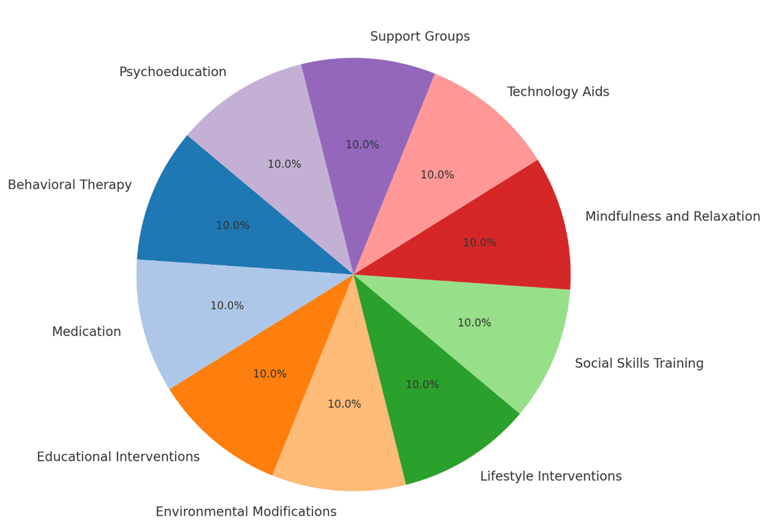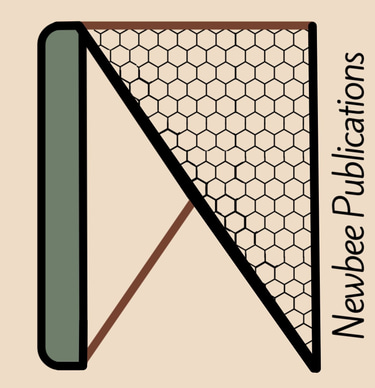The Impact of Digital Media on Therapy: A Growing Concern
Newbee Publication
8/16/20243 min read


In today's digital age, the rising influence of mobile apps like TikTok, WhatsApp, and Instagram is creating new challenges for therapy, especially for children diagnosed with ADHD. Recent studies reveal that excessive use of these platforms is not only worsening attention deficits in children but is also contributing to ADHD-like symptoms in parents.
This digital overload complicates therapy, making it harder to achieve effective outcomes. The environment meant to support a child's growth may unintentionally reinforce the attention issues we're trying to address. This distraction also leads to a surface-level understanding of learning, where children might recognize cause and effect without truly grasping the deeper concepts.
This growing trend is a cause for concern for everyone involved in a child's development and education.
Here is a chart enumerating the signs of ADHD along with their descriptions:
**Signs of ADHD** Description
| Inattention | Difficulty staying focused on tasks
| Hyperactivity | Constant movement or restlessness
| Impulsiveness | Acting without thinking about consequences
| Difficulty with Organization | Struggling to keep tasks and belongings organized
| Poor Time Management | Inability to manage time effectively
| Forgetfulness | Frequently losing or misplacing items
| Fidgeting | Inability to sit still, often squirming
| Excessive Talking | Talking excessively, often at inappropriate times
| Difficulty Waiting Turn | Finding it hard to wait in line or take Turns
| Easily Distracted | Quickly diverted from tasks by external stimuli.
Effective ADHD interventions typically involve a combination of behavioural strategies, environmental modifications, and, in some cases, medication. Here are some of the best interventions for managing ADHD:
1. Behavioural Therapy
- Parent Training: Parents learn strategies to help their children manage ADHD symptoms. This might include setting clear expectations, using consistent discipline, and positive reinforcement.
- Cognitive Behavioural Therapy (CBT): Helps individuals develop skills to manage their symptoms, such as problem-solving, planning, and managing emotions.
2. Medication
- Stimulants: Medications like methylphenidate (Ritalin) and amphetamine salts (Adderall) are commonly prescribed. They help improve attention and reduce hyperactive and impulsive behaviours.
- Non-Stimulants: Medications like atomoxetine (Strattera) or guanfacine (Intuniv) are alternatives, especially for those who may not respond well to stimulants.
3. Educational Interventions
Individualised Education Plan (IEP) or 504 Plan: These are formal plans developed with schools to provide accommodations like extended test time, a quiet workspace, or modified assignments.
- Classroom Strategies: Teachers can implement strategies such as breaking tasks into smaller steps, using visual aids, and offering frequent breaks.
4. Environmental Modifications
- Structured Environment: Creating a consistent routine and minimising distractions at home and school can help children with ADHD manage their symptoms better.
Organisational Tools: Using planners, checklists, and visual schedules can help with time management and task completion.
5. Lifestyle Interventions
- Regular Physical Activity: Exercise can improve focus, reduce impulsivity, and provide a healthy outlet for excess energy.
- Healthy Diet: A balanced diet with adequate protein, omega-3 fatty acids, and limited sugar intake can positively affect mood and behavior.
- Sleep Hygiene: Ensuring adequate and consistent sleep is crucial for managing ADHD symptoms.
6. Social Skills Training
- Group Therapy: Helps children and adults develop better social skills, such as taking turns, reading social cues, and managing relationships.
7. Mindfulness and Relaxation Techniques
- Mindfulness Training: Helps improve attention and reduce impulsivity by teaching individuals to focus on the present moment.
- Relaxation Techniques: Techniques like deep breathing, yoga, and progressive muscle relaxation can reduce stress and anxiety, which often accompany ADHD.
8. Technology Aids
- Apps and Tools: There are various apps designed to help individuals with ADHD organize tasks, set reminders, and track progress.
9. Support Groups
- Parent and Peer Support Groups: These provide a platform for sharing experiences, tips, and emotional support, which can be particularly beneficial for both parents and individuals with ADHD.
10. Psychoeducation
- Education about ADHD: Understanding the condition helps individuals and their families develop strategies to manage symptoms effectively.
Combining Interventions
The most effective approach is usually a combination of these interventions, tailored to the individual's specific needs. Collaboration between healthcare providers, educators, and families is crucial to ensure that the chosen interventions are effectively implemented and adjusted as needed.
For more information and resources on effective therapy interventions, visit the Newbee Publication Therapy Resources page.
#DigitalMedia #ADHD #TherapyChallenges #ChildDevelopment #MentalHealth
Contact us:
